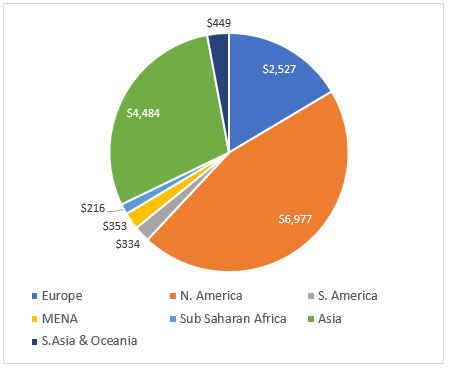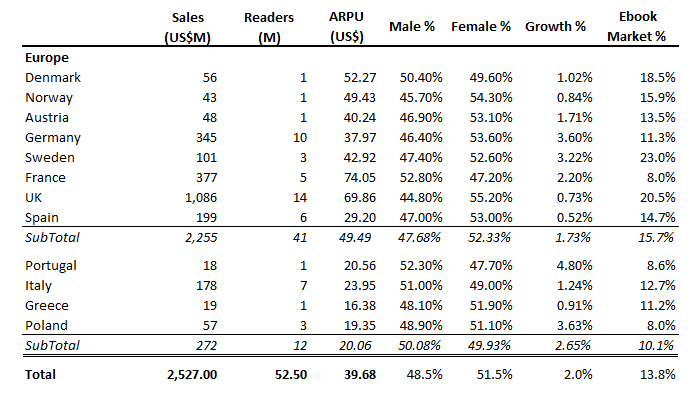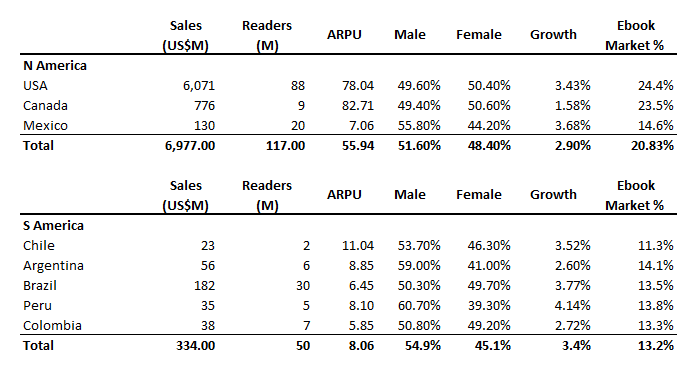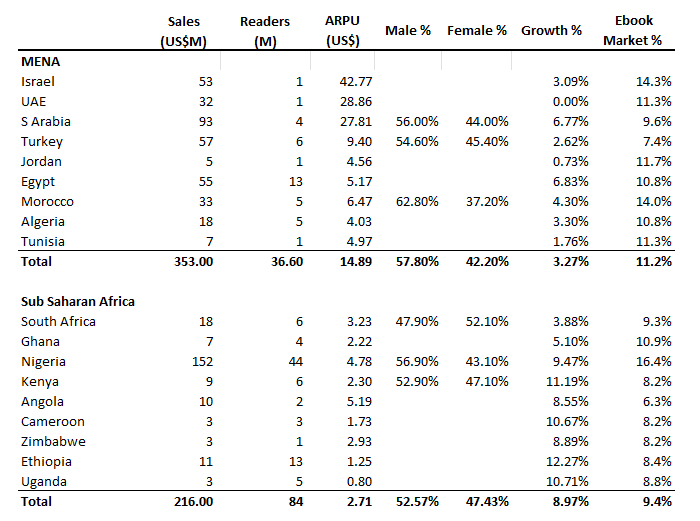Home » Blog » Online Books » The Ebook Market
The Digital Book Market

Written by
Phil Winston
The size of the global book market is estimated at between US$120Bn and US$130Bn of turnover per year. Roughly US$40Bn of this takes place in Europe, US$25bn in the US, US$20Bn in China, US$15Bn in Japan, US$4Bn in India, and roughly US$3Bn across Central and South America.
The eBook Market
The global eBook market, as a segment of that larger general book market, is estimated to be as big as US$30Bn per year. So not small by any measure, and bigger in its totality than the entire US book market.
Given that this figure is based on shared data from major retailers only, with even Amazon figures hard to come by these days, the actual size estimates of the total independent eBook market are at least twice as large as what is reported (Catalano, 2018).
This suggests a global multi US$billion ebook market simmering under the surface, one at least US$30Bn in size. But even there the potential of a digital book market is underestimated, with penetration in multiple markets around the world still in its infancy, and suffering from relatively easy to overcome adoption barriers.

The division of revenues by country is generally available, with the following charts outlining where readers are, and what the Average Revenue Per Unit sold (ARPU) is.
Europe

The Americas

The Middle East & Africa

Asia

Analysis
What is clear is that there is a massive market, with multiple entry points and a variety of profit margins. There is also massive room for growth in a number of countries, including what would be considered the more mature of the listings. The US for example, is still only at 24% ebook usage, meaning there is plenty of room for growth even there.
Everywhere else is lower than this, representing markets with up to 90% of customers available as first time and potential repeat readers of your work.
This includes non-English speaking countries, such as Germany at 11% adoption, but a high US$37 average unit price. Spain represents a fertile market for testing the waters in Latin markets also, with 14% adoption and US$29 per unit the average there. Establishing a reader base here could help to perfect a book or series, and even a marketing strategy, before expanding into the much bigger but lower revenue generating markets of South and Central America.
Conclusions
Ebook market size is therefore not merely a function of customer tastes, but again one of access, both for readers and authors alike. Where little to no ereader distribution exists, there is little to no ebook consumption.
This aligns with the DPP Business case, which is based on the fundamental premise that the lack of money made by authors is clearly not due to a lack of money in the market. But of structure.
DPP Primary Benefit
This service is designed to directly address the market access and distribution components of selling books online.
By helping to solve this issue, through the creation of author controlled sales channels, existing but untapped markets can be accessed and served.
A direct to reader relationship means that such a variety and mix of markets could serve as your individual author sales landscape, with the limitations of third party marketplaces no longer your concern.